The following is a list of the top 20 most addictive substances. The addictiveness rating is calculated based on the results of two separate studies. The first was a study undertaken by John Hastings for
In Health Magazine. The second, from a study by Robert Gore and Mitchell Earlywine, entitled 'Marijuana's Perceived Addictiveness: A Survey of Clinicians and Researchers'. It is taken from the book
Pot Politics: Marijuana and the Politics and the Costs of Prohibition
Further studies into the field of drug addictive include those by Dr Jack Henningfield Ph. D (who contributed his advice to this article) and Neal L. Benowitz M.D. The results of these two tests were published in an article in the New York Times, entitled:
Is Nicotine Addictive? It depends on whose criteria you use, published August 2nd, 1994.
#20 Methadone
Addiction Likelihood = No data
Although according to NARCONON methadone can be as addictive as heroin
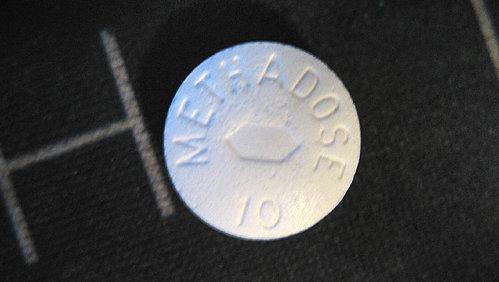 Also Known As
Also Known As
Symoron, Amidone, Methadose, Heptadon, and more. Sometimes known as meth, linctus, or mixture.
History
Developed in Germany in the 1930s as a synthetic opiod, methadone was used as a pain killer by German soldiers in World War II. It was introduced in the USA in 1947 by Eli Lilly in 1947, under the trade name 'Dolophine'. Since this time, it has been used in the treatment of narcotic addiction, most notably heroin.
Effects
Methadone is a sedative drug that depresses the nervous system. It can help to relieve feelings of anxiety, and reduce physical and psychological pain. Notably, methadone does not give rise to feelings of euphoria, which heroin does.
Common administration
Methadone was traditionally administered in the form of a racemic oral solution. Now it's also common to take it as a traditional pill or in the form of a powder, dissolvable in water.
Health issues
There are several listed adverse effects of methadone on the body. These include hypoventilation, constipation, chronic fatigue, reduced blood pressure, vomiting, cardiac arrhythmia, mood changes, insomnia, and impotence.
#19 Mescaline
Addiction Likelihood = 16%
 Also Known As
Also Known As
3,4,5-trimethoxyphenethylamine
History
Extracted from various types of cactus, such as the peyote and the San Pedro, mescaline was first used in Native American religious ceremonies. Once it reached Europe the drug became popular with many writers and artists. Aldous Huxley, Aleister Crowley, and Pablo Picasso are all said to have experimented with Mescaline.
Effects
Mescaline can cause hallucinations, usually consistent with actual experiences (rather than imagined ones as with LSD). Intensification of light and colour is common, as is synesthesia. Effects can last for up to 12 hours.
Common Administration
The cacti which contain mescaline are prepared by removing their 'heads' and drying them to make disk-shaped buttons. These buttons can be chewed or soaked in water to make a drink. Sometimes users grind the dried buttons to make capsules which can be swallowed. The effective dose of pure mescaline in a human is 300-500mg.
Health issues
Small doses of mescaline can speed up the heart, raise blood pressure, and cause illness or nausea. Higher doses may induce bloody diarrhoea and loss of consciousness. Long-term effects can include flashbacks, or hallucinogen persisting disorder.
#18 Psilocybin Mushrooms
Addiction Likelihood = 17%
 Also Known As
Also Known As
Contains psilocybin and psilocin. Also known as magic mushrooms or shrooms.
History
The use of hallucinogenic mushrooms is thought to date back to prehistoric times. However, the use of 'magic mushrooms' in Western culture was only first popularized in the 1950s. Since then the availability of the psilocybe mushroom has made it one of the most widely-used hallucinogens in the World.
Effects
Magic mushrooms can bring about hallucinations, along with feelings of euphoria and elation. Users may experience stomach-ache, sickness and/or diarrhoea. There is a risk of a 'bad trip' which can cause emotional and psychological distress. Effects of psilocybin mushrooms typically last from 3 to 8 hours.
Common Administration
Magic mushrooms are eaten raw, dried, cooked in food, or stewed in a tea.
Health issues
Eating psilocybin mushrooms can cause stomach pains, nausea and vomiting, and can complicate existing mental health problems. One of the main health risks is that users may eat the wrong kind of mushroom.
#17 LSD
Addiction Likelihood = 32%
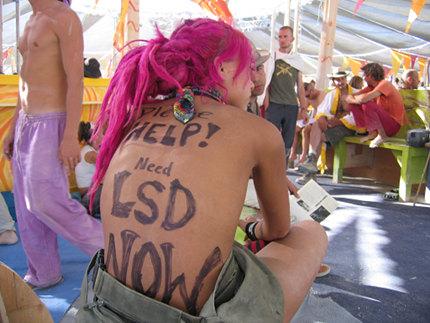 Also Known As
Also Known As
Lysergic acid diethylamide. Known as LSD, LSD-25, or acid
History
LSD was first produced and ingested by Albert Hoffmann in 1938, synthesized from ergot, a grain fungus. It was first used as a drug to treat psychiatric conditions, but abuse of the drug in the mid twentieth century led to it being criminalized.
Effects
Short term effects of LSD include a distorted perception of time and space, hallucinations, and heightened senses. LSD can also bring on psychological or emotional effects such as anxiety, depression, paranoia or dizziness. Physical effects can include lowered body temperature, nausea, vomiting and convulsions.
Common Administration
LSD is a colourless and tasteless crystalline substance which is soluble in water. It is typically ingested via blotting paper, tablets, capsules, or gelatine sheets.
Health issues
Aside from a growing tolerance to the drug, the long-term effects of acid can include flashbacks, anxiety and depression. There is little evidence of any physical dangers of long-term LSD use.
#16 Ecstasy
Addiction Likelihood = 40%
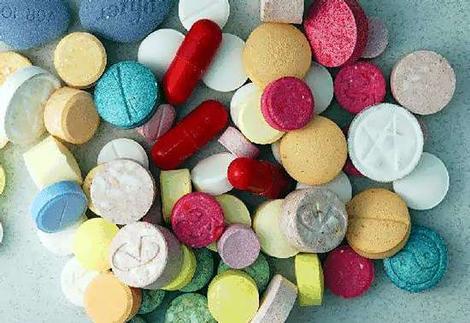 Also Known As
Also Known As
MDMA (3,4-methylenedioxymethamphetamine). Also known as 'E' or pills.
History
MDMA was originally known as 'Empathy' and before it was criminalized, was used in psychotherapy to treat patients with clinical depression. 1980s ecstasy's popularity as a street drug boomed in the UK and parts of Europe, linked with rave culture. MDMA has since become one of the four most widely-used illicit drugs in the USA.
Effects
Ecstasy heightens a user's energy, making them feel more alert and alive. It can make colours and sounds appear more intense, induce feelings of intimacy and empathy, and decrease hostility and insecurity. The drug decreases appetite and can cause short-term memory loss.
Common Administration
Ecstasy is normally ingested orally in the form of tablets or crushed into powder
Health issues
Common health risks of MDMA include increased body temperature and blood pressure, hyperthermia, dehydration and hyponatremia. Effects of chronic use can include long-term memory loss, anxiety, and depression.
#15 Cannabis
Addiction Likelihood = 42%
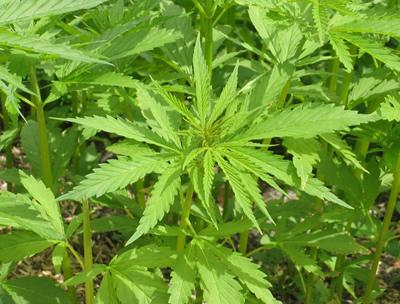 Also Known As
Also Known As
Cannabis sativa. Active chemical compound: Delta-9-tetrahydrocannabinol (THC). Also known as marijuana, ganja, weed
History
Evidence of cannabis use dates back to as far as 3BC, and it was popular among the ancient Hindus of India and Nepal. It has been used throughout history for religious, spiritual and medicinal purposes. Although now illegal in most countries, recreational use in Western countries has led to such a demand that cannabis is now the largest cash crop in the USA.
Effects
Subjective psychoactive effects (a 'high') vary depending on the individual and the method of use. Common reported effects include feelings of relaxation, increased appetite, sensory awareness, or a feeling of slowing of time. Physical and neurological effects include increased heart rate, lowered blood pressure, and impairment of concentration and psychomotor coordination.
Common Administration
Cannabis is consumed in a number of different ways, most of which either inhaling the smoke from an ignited plant, or ingesting orally.
Health issues
Besides the risk of lung disease and respiratory illness through smoking the plant, there is evidence that cannabis can also lead to or exaggerate mental health problems.
#14 PCP
Addiction Likelihood = 55%
 Also Known As
Also Known As
Phencyclidine. Street names include: Angel dust, supergrass, boat, and tic tac
History
Originally tested as a surgical anaesthetic after World War II, the use of PCP in medicine was halted in the 1960s due to its adverse side effects.
Effects
Psychological effects associated with PCP can include changes in mood, depersonalization, hallucinations, and euphoria.
Common Administration
PCP is generally ingested in one of three ways: Snorted, swallowed, or smoked. It is most commonly added to cannabis joints and smoked as an 'embalming fluid' to intensify the effects of marijuana.
Health issues
Chronic abuse of PCP can impair memory and thinking. Long-time users may develop speech difficulties, suicidal ideation, anxiety, depression, and social withdrawal.
#13 Caffeine
Addiction Likelihood = 67%
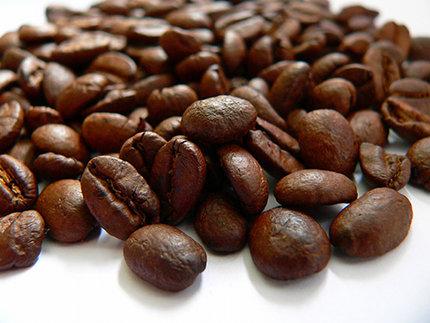 Also Known As
Also Known As
1,3,7-trimethylxanthine, trimethylxanthine, theine, methyltheobromine
History
Caffeine has been consumed by humans since the Stone Age. If you believe the Chinese legend, the first caffeinated drink was created by the Emperor of China Shennong in 3000BC, when he accidentally dropped some leaves in boiling water and drank the result.
Effects
Caffeine stimulates the heart, respiratory system, and central nervous system, causing the user to feel more alert. It is classed as an ergogenic, which increases the capacity for mental or physical activity.
Common Administration
Almost always, caffeine is administered in the form of a drink, made from caffeine containing plants - the most popular being coffee, tea, and cacao.
Health issues
Caffeine can make a person feel restless, anxious and irritable. It has a number of physical side effects, which can include dizziness, dryness in the mouth, diarrhoea, nausea and hypoglycaemia.
#12 Cocaine
Addiction Likelihood = 78%
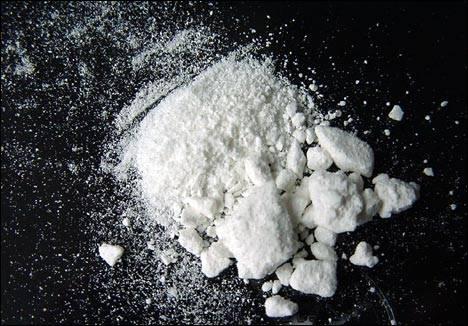 Also Known As
Also Known As
Benzoylmethylecgonine. Also known as: Coke, snow, Charlie, white
History
Cocaine has been used for thousands of years by indigenous South Americans, who chew the coca leaf. It was popularized in Europe in the mid 1800s, when coca and cocaine were used to make wine, anaesthetics, and, famously, Coca-Cola.
Effects
The main effects of cocaine are hyperactivity, restlessness, increased blood pressure, increased heart rate, and euphoria. Effects can last between 20 minutes and a few hours depending on dosage, purity, and the way it is administered.
Common Administration
There are a range of ways cocaine is administered, including orally (e.g. Rubbing on gums, applying to a cigarette and smoking it), chewing the coca leaf, insufflation (known as 'snorting'), injection, or inhalation.
Health issues
Chronic use of cocaine can cause a number of health problems, including increased risk of strokes, reduced attention, lethargy, lung disease, increased risk of heart attack, as well as psychological problems.
#11 Amphetamine
Addiction Likelihood = 81%
 Britney Spears Has Tested Positive for Amphetamine
Also Known As
Britney Spears Has Tested Positive for Amphetamine
Also Known As
Speed, whizz, base.
History
Amphetamine was first use as an artificial replacement for ephedrine in the early 20th century. Placed in an inhaler under the trade name Benzedrine, the drug was used extensively during the Second World War to combat fatigue in soldiers. Benzedrine was later banned by The Food and Drug Administration agency due to problems with abuse,
Effects
The psychological effects of amphetamine can include increased confidence, creative thinking, euphoria, increased concentration, and an increased sense of well being. Physical include headache, hyperactivity, sweating, blurred vision, diarrhoea, and erectile dysfunction.
Common Administration
Amphetamine can be ingested by orally, whereupon the effects will be felt in around 30 minutes; or injected, in which case the effects will start much quicker and can last for around six hours.
Health issues
Taking amphetamine can lead to an increase in blood pressure and heart rate, cause depression and irritability, and reduce the effectiveness of the immune system.
#10: Alcohol
Addiction Likelihood = 82%
 Lindsay Lohan Binge Drinking
History
Lindsay Lohan Binge Drinking
History
Chemical traces in pots discovered in Northern China, suggests that alcohol has been fermented and consumed by humans for more than 9,000 years. Muslim chemists were the first to create fully purified, distilled alcohol. Alcoholic beverages are now consumed in almost every nation for recreational purposes, medicinal reasons, and for its effects as a relaxant.
Effects
Alcohol acts a relaxant and, as such, can reduce feelings of anxiety and inhibitions, making the user feel more sociable. Other short-term effects include intoxication, dehydration, and alcohol posioining.
Common Administration
Alcohol is generally consumed in the form of a drink. These drinks come in three main classes: Beer, wine, and spirits.
Health issues
Alcohol can have a number of serious, long-term health effects associated with chronic use. These include heart disease, dementia, cancer, diabetes, stroke, and alcoholism.
#9 Seconal
Addiction Likelihood = 82%
 The cause of Judy Garland's death was an accidental overdose of Secona
Also Known As
The cause of Judy Garland's death was an accidental overdose of Secona
Also Known As
Secrobarbital. Often known as 'reds' or 'red hearts'
History
Seconal was first synthesized in 1928 and was marketed by Eli Lily as a sedative. It also has anaesthetic, anticonvulsant and hypnotic properties, and is used to treat epilepsy, insomnia and as an anaesthetic in surgery.
Effects
Seconal slows activity in the brain, relieving anxiety and inducing sleep.
Common Administration
Seconal is available as 100mg capsules. It is available as either a free acid or a sodium salt, which is soluble in water and ethanol.
Health issues
Possible side effects of Seconal include impaired coordination, confusion, headache, nausea, vomiting, nightmares, and allergic reactions. Withdrawal symptoms can include anxiety, insomnia, seizures, tremors and lack of appetite.
#8 Quaalude
Addiction Likelihood = 83%
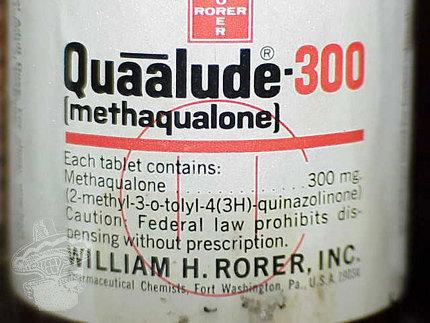 Also Known As
Also Known As
Methaqualone
History
First synthesized in India in 1956, Quaalude was introduced in Europe and Japan as a safe barbiturate substitute. Around the height of its popularity as a sedative medicine, in the mid-1960s, it started to become a popular recreational drug too. Quaalude was popular with American college students, who would 'lude out' on a regular basis.
Effects
Effects of Quaalude in small doses can include relaxation, euphoria, reduced heart rate, increased sexual arousal and parasthesias. Higher doses can bring on depression, slurred speech, and headaches.
Common Administration
Quaalude is taken in the form of a tablet or it can be smoked. If smoked, it instantly induces a trance-like euphoria, which quickly wears off.
Health issues
Health risks include death from overdose, or emphysema and other lung diseases, if smoked.
#7 Diazepam
Addiction Likelihood = 86%
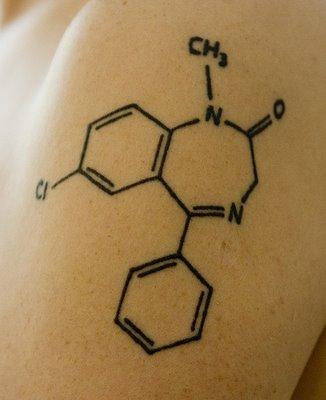 Also Known As
Also Known As
Valium
History
Diazepam was first marketed by Sternbach under the name Valium in 1963. It was the top selling pharmaceutical in the US from 1968 to 1982. It is used for the treatment of sleep disorders, depression, alcohol withdrawal, and bipolar disorder.
Effects
Diazepam has a sedative and relaxing effect that can help to induce sleep. Side-effects can include impaired motor function, depression, anterograde amnesia, and cognitive deficits.
Common Administration
Dosages are normally determined on an individual basis, and range from 2mg per dose to 10mg per dose, depending on the severity of the symptoms exhibited by the patient.
Health issues
In some cases use of Diazepam can bring on nervousness, insomnia, muscle cramps, rage and violence. Overdoses of Diazepam are rarely fatal, unless mixed with other substances.
#6 Heroin
Addiction Likelihood = 87.5%
 Also Known As
Also Known As
Dacetylmorphine. Also known as smack, horse, gear, skag, brown
History
The opium poppy, from which heroin is derived, was first cultivated in Mesopotamia as long ago as 3400BC. Diacetylmorphine was first synthesized in the late 1800s and was marketed as Heroin by German pharmaceutical company Bayer as a non-addictive morphine substitute and cough remedy. It was later discovered that diacetylmorphine did, in fact, metabolize into morphine very quickly.
Effects
Short-term effects of using Heroin can include euphoria, an alternating state of alertness and drowsiness, mouth dryness, warm flushing, and slowed breathing.
Common Administration
Heroin is commonly administered intravenously (often known as 'shooting up) where the base is dissolved in water and injected into the bloodstream. Users may also snort or smoke Heroin.
Health issues
There are many long-term health risks associated with Heroin. Aside from addiction itself, these can include collapsed veins, heart infection, decreased liver function, and abscesses.
#5 Oxycodone
Addiction Likelihood = 99%
 Jack (LOST) looking for his oxycodone pills
Also Known As
Jack (LOST) looking for his oxycodone pills
Also Known As
OxyContin, Perocet, Tylox, Percodan, and more. Often known as Hillbilly Heroin
History
Oxycodone was first synthesized in 1916 by Freund and Spreyer of the University of Frankfurt. It was later mass produced by Bayer as a dependence-free pain relief solution to morphine and heroin (which the company had already been forced to stop production of). Oxycodone has been used in Pharmaceutical drugs such as OxyContin, Percocet (which also includes paracetamol), and Percodan (which includes aspirin).
Effects
Common effects of Oxycodone consumption include lightheadedness, euphoria, fatigue, nausea, headache, anxiety and constipation.
Common administration
Oxycodone can be consumed orally, rectally, intranasally, or via injection. 10-15mg of oxycodone equates to roughly the same analgesic effect as 10mg of morphine.
Health issues
Negative health issues arising from taking Oxycodone can include mood changes, fainting, seizures, swelling of the eyes, and difficulty swallowing.
#4 Crystal Meth
Addiction Likelihood = 89.5%
 Also Known As
Also Known As
Methamphetamine, injected. Also known as tik, shabu, ice, glass, crank, meth
History
Methamphetamine was discovered in 1894 by Japanese chemist Nagayoshi Nagai, who synthesized it from ephedrine. It was used by the German military in World War II, where it was dispensed to pilots and tank crews in the form of chocolate. It is said that in Hitler's later years he was regularly injected with methamphetamine to combat his depression and fatigue.
Effects
Crystal meth brings on a feeling of exhilaration and a sharpening of focus, making the user feel more alert. It also induces a feeling of sexual liberation and is able to keep users awake for many hours. Smoking ice causes body temperature to rise, and blood pressure and respiratory rates increase. The drug can bring about hallucinations, paranoia, and psychotic behaviour.
Common administration
Intravenous injection of crystal meth is the fastest-acting method of inducement, followed by smoking, anal insertion, insufflation ('snorting') and ingestion.
Health issues
Overuse of crystal meth can bring about paranoia, short term memory loss, wild rages, mood swings, and damage the nervous system. Overdosing can result in severe convulsions, circulatory and respiratory problems, coma, and death.
#3 Ice, Glass
Addiction Likelihood = 92.5%
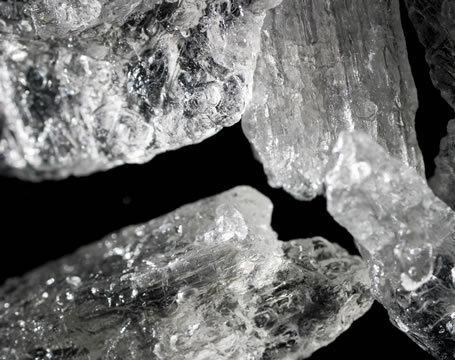 Also Known As
Also Known As
Methamphetamine, smoked
History
See entry for #4 Crystal Meth
Effects
Effects of smoking methamphetamine are virtually the same as if it were injected (see #4 Crystal Meth). Smoking ice causes body temperature to rise, and blood pressure and respiratory rates increase.
Common administration
Ice is typically smoked in a glass pipe, light bulbs, or on aluminium foil heated from the bottom. The process is known as 'chasing the white dragon'.
Health issues
Smoking crystal meth can bring on the same health issues as reported above (#4 Crystal Meth). However, there are added risks when smoking ice on a long-term basis, such as lung damage and severe tooth decay.
#2 Crack
Addiction Likelihood = 95.5%
 Also Known As
Also Known As
Methylbenzoylecgonine. Also known as rock, wash, stones, freebase
History
Crack cocaine first sprung up in the inner-city neighbourhoods of New York, Los Angeles and Miami in the mid-1980s. Faced with dropping street prices of cocaine at the time, drug dealers converted the powder into crack, which could be sold in smaller dosages and to more people. It resulted in a 'crack epidemic' in the United States between 1984 and 1990, bringing about a massive increase in addiction, theft, homlessness and murder.
Effects
Crack affects the brain chemistry of the user, bringing on euphoria, alertness, confidence, increased energy, loss of appetite, and in some cases, paranoia. Physiological effects include increased body temperature, dilation of pupils, constriction of blood vessels, tremors, and twitches.
Common administration
Crack, or 'freebase cocaine', is made by dissolving powder cocaine in water and adding a strong alkaloid solution, such as ammonia or baking powder. A flammable solvent such as ether is then added and a solid cocaine base is separated out from the mixture. Most users smoke crack through a pipe, although it is sometimes injected intravenously.
Health issues
After the short-lived euphoria associated with a hit of crack, a crash follows, which can involve anxiety, anhedonia, depression, fatigue, and irritability. There are also health issues associated with toxicity, smoking-related illness, and the risk of contracting diseases by sharing pipes.
#1 Tobacco
Addiction Likelihood = 96.5%
 Also Known As
Also Known As
Nicotiana
History
Tobacco was originally used by Native Americans with many consuming it as an entheogen, in shamanic or religious ceremonies. Many believed the tobacco plant was a gift from God and the smoke would carry their thoughts and prayers up to heaven. After the arrival of the Europeans into America, tobacco was exported and became a hugely successful trade item, creating a booming industry in the Southern States of the USA. It wasn't until the mid-1900s that scientific evidence revealed the true harmful effects of smoking tobacco.
Effects
The short-term effects of tobacco can include rise in blood pressure and heart rate, stimulation then reduction of activity in the brain and central nervous system, production of stomach acid, dizziness, and weakening of appetite, taste and smell.
Common administration
Tobacco is generally consumed by smoking it, although it is possible to attain thee same effects from the drug by chewing it. Tobacco can be smoked in the form of a cigarette, pipe, or cigar.
Health issues
The health risks of smoking tobacco are well documented. Physical effects can include Cancer, pulmonary disease, cardiovascular disease, oral conditions, infections, and reproductive problems.
books.google.co.uk
www.procon.org
www.erowid.org



















